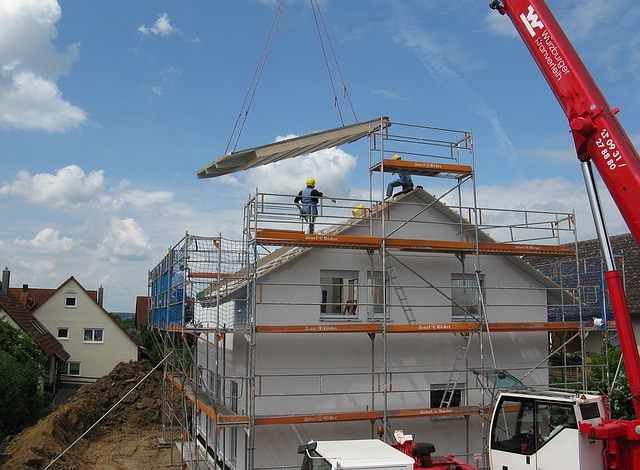
House building rate falling substantially, survey finds
A new survey of house building companies has revealed that the construction of new homes has fallen significantly since the EU referendum in June 2016. The survey, carried out for construction consulting and design agency McBains, spoke to more than 400 house building companies in England, with many skeptical that the government will meet its current house building targets, let alone the new ones set out by Philip Hammond in the latest Budget.
Less than one in three thinks the government will meet its house building target of one million new homes by 2020, while over one in three say Brexit will affect their ability to recruit skilled workers.
The research found that just 38% of respondents had upped their rate of house building over the last 12 months, in comparison to 50% of house builders when the same question was asked in a previous survey conducted by McBain (in May 2016) before the referendum result had been announced. London is still the area where the rate of house building has increased the most over the last year (half of those responding said their rate of house building had risen), but this is down on 2016, when 60% said they had upped their rate.
The fall has been blamed by house builders on a weakening of demand (38%), a shortage of skilled labour (32%), a lack of available finance (22%) and planning permission taking too long to process (22%). Just 30% believe the government will meet its ambition of building a million homes by 2020, with the main reasons for this failure being: not enough land (48%), planning permission taking too long (41%) and a lack of available finance (37%).
The survey also questioned house builders on what they think can be done to increase house building across the UK. Some 36% said the government should release more publicly-owned land, while 32% said the government should incentivise large construction firms to develop and build homes more quickly.
Furthermore, the survey showed that more than half of house builders (52%) are optimistic about the state of the housing market overall, with 18% very optimistic. Optimism is at its highest in London (65%).
When asked what the biggest issue facing their company at the moment is in terms of building houses, 28% said land availability and 24% cited skills shortages. The trades where those skills shortages are most noticeable are general construction professions (33%) and bricklayers (17%).
The findings revealed that Britain’s house building industry is very reliant on ‘skilled itinerant workers’ from outside the UK, with non-UK citizens accounting for 20% of housebuilders’ labour force. This rises to 33% in London, or one in three of the overall workforce.
As such, 36% of those who responded are worried about the impact of Brexit on the availability of workers because of changes to freedom of movement. Again, this rises (to 47%) in the capital.
Already, one in five housebuilders (26%) have found it more difficult to recruit staff from non-UK countries since the EU referendum, with the issue at its most acute in London (38%).
What’s more, 50% of housebuilders – and nearly 60% in London – are concerned about the effect Brexit will have on their business if fewer properties are purchased by overseas buyers.
“This survey shows the shadow of Brexit still looms large over the house building industry,” Michael Thirkettle, chief executive of McBains, commented. “Uncertainty over the terms of EU withdrawal is having a real impact, with the survey showing a weakening of demand because UK investors are biding their time on committing to new projects.”
He added: “Not enough land is the reason most house builders think the government’s target for a million new homes to be built by 2020 will not be achieved. The industry was hoping for the Budget to provide a shot in the arm for growth, such as freeing up more land like greenbelt and simplifying planning permission. Yet, although the Chancellor promised to introduce planning reforms to ensure more land is made available, there was no detail on how this would be achieved.”